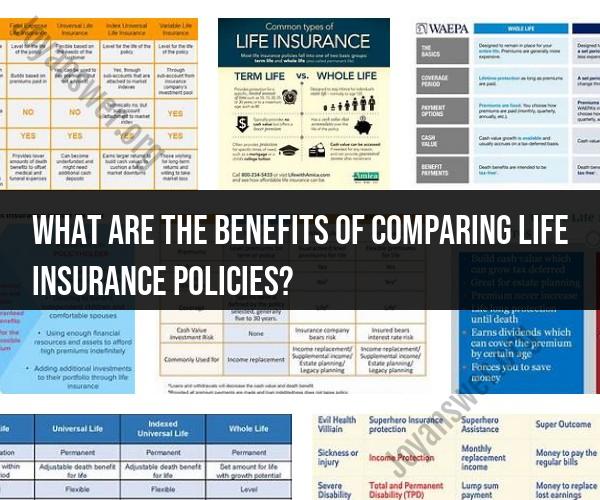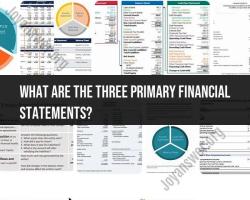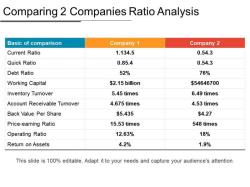What are the benefits of comparing life insurance policies?
Comparing life insurance policies is a crucial step in making an informed decision about the coverage that best suits your needs. Here are the key benefits of comparing life insurance policies:
Cost Savings: Comparing policies allows you to find the most cost-effective option. You can identify policies with competitive premiums and discounts, potentially saving you money over the life of the policy.
Customization: Different insurance policies offer various features and options. By comparing policies, you can tailor your coverage to match your specific needs, ensuring you're not paying for unnecessary benefits.
Coverage Adequacy: Through comparison, you can assess whether the coverage amount (death benefit) offered by each policy is sufficient to meet your financial obligations and goals. This helps prevent underinsurance or overinsurance.
Policy Type Selection: Life insurance comes in various types, such as term life, whole life, and universal life. Comparing policies enables you to choose the type that aligns with your financial plans and objectives.
Flexibility: Some policies offer flexibility in premium payments, while others have fixed premiums. By comparing policies, you can select one that matches your preferred premium payment schedule.
Rider Options: Policy riders provide additional benefits or features, such as accelerated death benefits or waiver of premium. Comparing policies allows you to assess which riders are available and relevant to your needs.
Company Reputation: Different insurance companies have varying reputations for customer service, claims processing, and financial stability. Comparing policies helps you choose a reputable insurer that you can trust.
Financial Strength: Assessing the financial strength of insurance companies is vital. Comparing policies allows you to consider the financial stability ratings of insurers from agencies like A.M. Best or Moody's.
Exclusions and Limitations: Every policy has exclusions and limitations that specify when it won't pay out. By comparing policies, you can understand these conditions and select one that aligns with your circumstances.
Ease of Application: Some policies may require medical exams, while others offer simplified underwriting or no-exam options. Comparing policies helps you choose one that matches your application preferences.
Discounts: Insurers may offer discounts for various factors, such as good health, non-smoking status, or bundling with other insurance products. Comparing policies lets you identify potential discounts.
Policy Term: Different policies have varying term lengths. Comparing policies helps you select a term that aligns with your financial goals and how long you need coverage.
Transparency: Through comparison, you can assess the clarity and transparency of policy documentation, ensuring you understand the terms and conditions.
Satisfaction Guarantee: Some insurers offer a satisfaction guarantee that allows you to review the policy after purchase and cancel it if you're not satisfied. Comparing policies helps you choose insurers with such guarantees.
In summary, comparing life insurance policies is essential for finding the right coverage that offers the best value for your needs. It enables you to make an informed decision, ensure cost-efficiency, and provide financial security for yourself and your loved ones.













